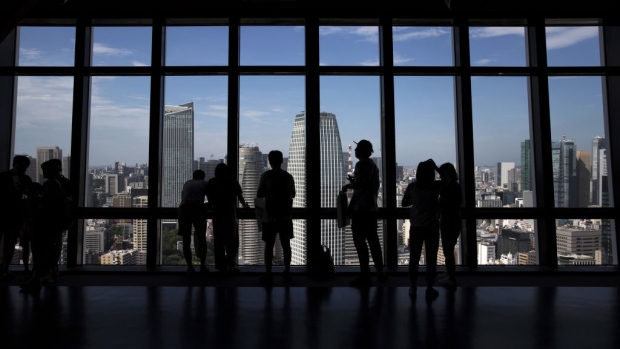Sep 17, 2019
BOJ Doesn’t Expect Market Backlash if Rate Cut Is Necessary
, Bloomberg News

(Bloomberg) -- Bank of Japan officials think lowering the negative interest rate, if they chose to do so in the coming months, wouldn’t backfire in financial markets because investors are aware of the possibility, according to people familiar with the matter.
While most officials wouldn’t be drawn on when the BOJ might act, some of the officials see little need to rush into taking action given recent stability in financial markets and continuing robust demand in Japan, the people said.
Governor Haruhiko Kuroda has repeatedly said cutting the negative rate is an option should the BOJ need to give more support to the economy and prices, and this has heightened awareness among investors, the people said.
About three quarters of economists polled by Bloomberg said they expect the BOJ to leave policy unchanged at its two-day meeting ending Thursday, after favorable market movements in recent weeks.
Yet more than 80% of the economists said they think the BOJ’s next step will be to add monetary stimulus, given the U.S.-China trade war, a dimming outlook for global economic growth and a sales tax hike in Japan that could hurt the economy.
Nearly a quarter of economists surveyed predicted the negative rate -- now -0.1% on a portion of commercial bank reserves -- will be lowered by the end of this year.
The market’s initial reaction to a rate cut would be important, the people said, after investors, commercial banks and the general public were blindsided when the negative rate was introduced in January 2016. At the time, Kuroda had said in parliament just days before that he wasn’t considering negative rates at all.
Instead of bolstering confidence in the BOJ’s ability to achieve 2% inflation, the introduction of the negative rate raised questions about the effectiveness of the BOJ’s existing policy options. The yen strengthened and bank stocks tumbled, and the central bank faced a backlash from lawmakers and the public.
Now that the negative rate has been in place for more than three years, BOJ officials think lowering it will have less of an adverse impact than its introduction, the people said.
BOJ officials are also increasingly confident that commercial banks are strong enough to cope with a lower negative rate if the central bank needs to ramp up its stimulus, according to the people.
While lower rates would further squeeze the profits of commercial banks, the officials don’t see the pain becoming overly disruptive to the nation’s financial system, the people said. The officials view capital levels at commercial banks as ample, the people added.
Still, BOJ officials acknowledge the need to find mitigating measures if they choose to lower the negative rate, the people said. One option would be to increase the portion of bank deposits eligible for a 0.1% return, they said.
From a global perspective, Japan’s negative rate is far from the lowest. The European Central Bank deepened its negative rate to -0.5% last week and Denmark cut its key rate to -0.75%.
To contact the reporters on this story: Toru Fujioka in Tokyo at tfujioka1@bloomberg.net;Sumio Ito in Tokyo at sito58@bloomberg.net
To contact the editors responsible for this story: Malcolm Scott at mscott23@bloomberg.net, Paul Jackson, Henry Hoenig
©2019 Bloomberg L.P.

